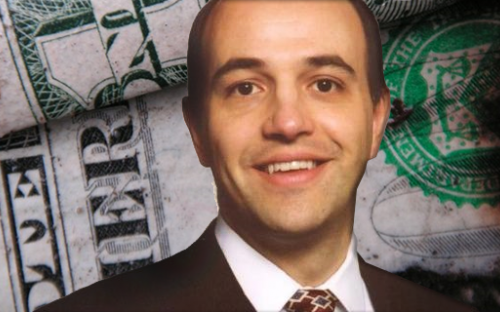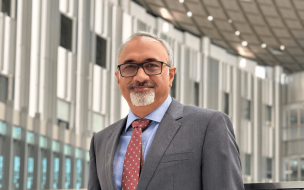While many business students are wondering whether they’re going to get paid at all, Alex Triantis, Professor and Chair of Finance at the Robert H. Smith School of Business, argues that they should think ahead. And not just about how much they’re making, but also about the non-monetary impact of their decisions on the firms they run and on the wider marketplace.
In October, the Smith School will launch its new Center on Financial Policy and Corporate Governance with a debate on executive compensation. At the same time the School has beefed up its finance and governance classes, as students are more interested than ever in the “mechanisms of the crisis.”
Last week the US House of Representatives voted to hand regulatory agencies strong new powers to control executive pay. It’s an area that exemplifies the kinds of failures that have worked business schools into a frenzy of curriculum reform and ethics pledges.
“I think there will be cultural changes,” says Triantis. “It’s not about just the letter of the law, but the spirit of the law.” It will be down to chief executives to retain talent without “pushing people to do the wrong thing to keep the company going.”
Triantis admits it's a delicate balance for managers to strike, and a minefield for government regulators. The last major legislation on executive pay was under President Clinton, when tax on incomes of more than $1 million was increased. As a result, salaries were set just below $1 million and executives were given vast equity-based packages instead, including the share options that led many to take excessive risks.
The Center’s opening roundtable will explore how government interventions affect incentives around setting pay. Its proximity to the heart of US government means it can draw policymakers and legislators into discussions. “Governance is a big issue,” says Triantis. “The new administration is hungry for good ideas, though things are happening way too fast… they’re very busy but they’re very receptive. We’re in a good spot.”
As well as executive compensation, the Center will focus on regulation of financial institutions, capital markets liquidity, transparency of derivatives markets and consumer protection in products such as mortgages. Faculty will also look at managing financial crises in a disciplined way, and international co-ordination of stimulus measures.
The Center has extensive links to government and banking. Managing Director Cliff Rossi comes from Citigroup, where he was Chief Risk Officer for Consumer Lending. He also headed risk at Washington Mutual and Countrywide and held senior positions at Freddie Mac and Fannie Mae.
Triantis and colleagues, along with their counterparts at many other business schools, are also changing the broader finance curriculum. Finance electives within the MBA program will be re-designed, but in the meantime the School has expanded existing courses.
They include a class on risk management, covering both financial and non-financial firms; a class on derivatives trading; two classes on fixed income securities; a class on corporate governance, covering how boards work, Sarbanes Oxley and executive pay; and institutional money management, which addresses how managers of different funds are incentivized and regulated.
The School is emphasizing careers in financial regulation – previously very much an also-ran option for business graduates. Monthly lectures will be an opportunity for students to connect with people from agencies like the FDIC (Federal Deposit Insurance Corporation), the CFTC (Commodity Future Trading Commission) and the new Financial Services Oversight Council. “At least some of the students we hope will get inspired to work for some of these agencies,” says Triantis.
A new one-year MS in Finance that will be housed in downtown Washington DC, near the Whitehouse, has attracted a “surprising” number of applications from people interested in working in government. The School is in discussions with agencies to find out what kind of programs would be most useful to them.
Triantis views the crisis in the banks as a chance to push bright students into government. “Business schools should view this as an opportunity,” he says. “It’s definitely a growth area.”
RECAPTHA :
af
f2
f2
4f



 1
1 



Comments.